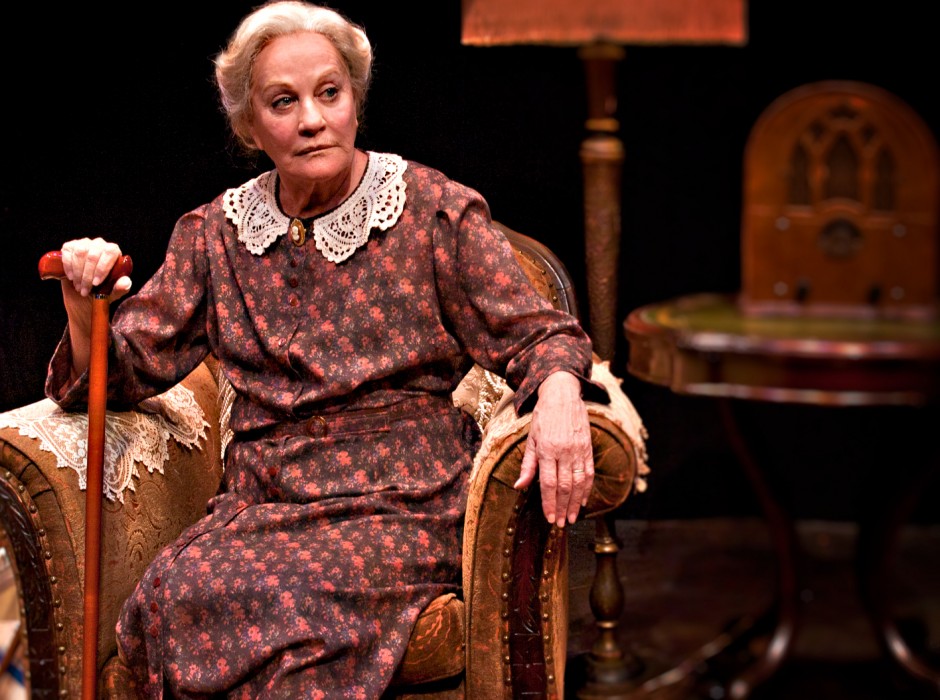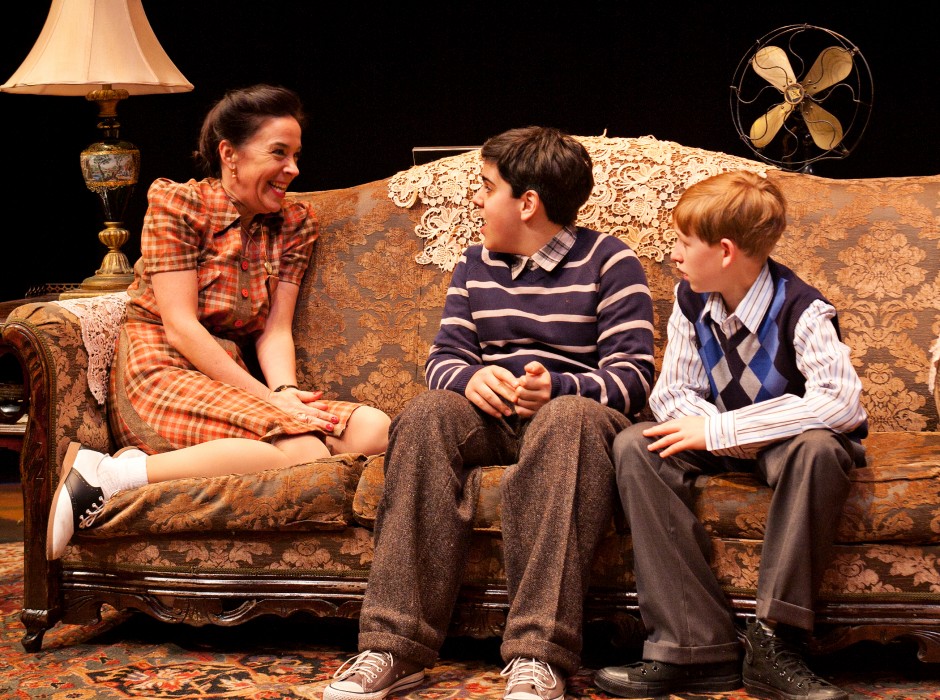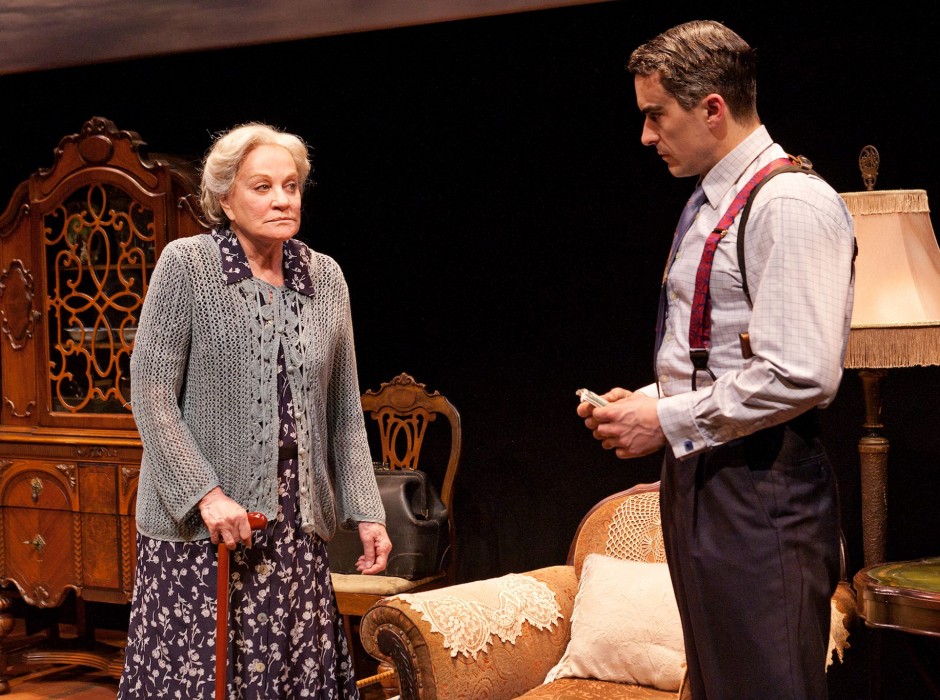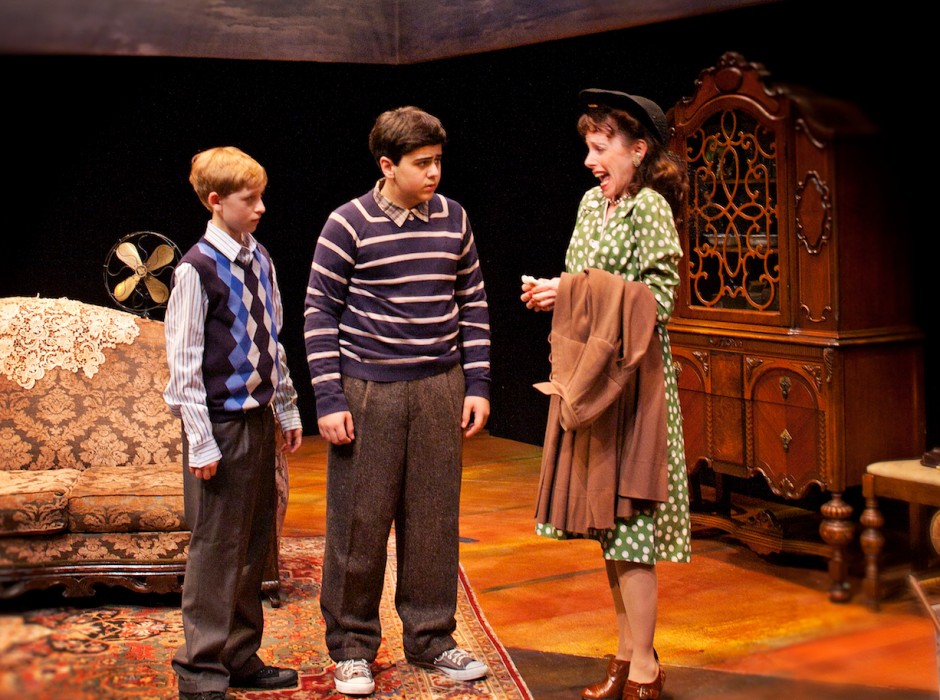Dramaturgy
Universally regarded as Broadway’s King of Comedy, Neil Simon has written such popular and critical successes as Barefoot in the Park, The Odd Couple, Laughter on the 23rd Floor and Broadway Bound. But, it is his Pulitzer Prize-winning Lost in Yonkers (not seen in New York since it debuted in 1991) that marks a critical turning point in a life and career celebrated by unprecedented commercial popularity.
After the huge success of the Brighton Beach trilogy, Simon was encouraged by critics to dig deeper and go further in his writing. An idea that had started out as a coming-of-age comedy about a young boy and his low-level, gangster uncle soon began to take shape. A grandmother appeared (a German Jewish refugee and widow hardened by a life of loss), and then an emotionally challenged Aunt struggling to break free from the limitations of her disabilities and the tyrannical rule of her mother. As this family began to emerge and expand (another boy, a father and second aunt were added), their collective story of abandonment and the price of survival took hold.
Simon himself was surprised at the play’s great success; he thought he had “written the bleakest of plays.” But the play’s underlying humanity, a complicated mix of darkness and humor, touched a raw nerve in audiences. Critical reception recognized this different, darker side of Simon, responding with accolades for the text and the depth of the characters presented. In addition to winning the Pulitzer, the play garnered four Tony Awards, including Best Play, and went on to run for 780 performances.
“In his 27th play, laughter and tears have come together in a new emotional truth,” Newsweek proclaimed. “Starting out bonkers in Yonkers, the family gradually deepens and darkens. These are all wounded human beings. Grandma, seemingly a monster of negativity – unloving, unfeeling, uncaring – turns out to be the most deeply wounded of all. Simon even dares to associate her with the Holocaust, and succeeds. The showdown scenes between Bella and her mother are the strongest [Simon’s] ever written.”
Although he never completely acknowledged the extent to which this play is autobiographical – Brighton Beach trilogy, is, after all his self-proclaimed autobiography – the essence of this play is deeply personal to Simon’s life. Its themes of abandonment, both physical and emotional, whether due to circumstances, death, or other more insidious reasons – were subjects of which Simon had first-hand knowledge.
Born in the Bronx on July 4, 1927, Marvin Neil Simon grew up in the Washington Heights section of Manhattan. His father, a garment salesman, deserted the family repeatedly, causing tremendous emotional and financial strain on those left behind. Simon and his older brother Danny were often forced to live with relatives as his parents’ stormy relationship played out in bouts of separation and reconciliation. The instability would leave its mark: “The horror of those years was that I didn’t come from one broken family but from five,” Simon recalls. The young man escaped to the movies and soon learned the comfort of laughter. “I think part of what has made me a comedy writer is the blocking out of the really ugly, and painful things in my childhood…I knew that whenever things were so terrible at home, the best thing for me was to go to the movies – do something to laugh until I was able to forget what was hurting.”
While the Kurnitz family of Yonkers is not an exact reflectioin of this won (though he admits to being “one of those two boys, probably the younger one”), Simon does confess to an even more revealing relationship: “I have a feeling that in Lost in Yonkers there was a theme within me that was crying to get out, a common denominator that got to everybody,” he stated in the early 90s. “In the last fifteen, twenty years, a phrase has come into prominence that didn’t exist in my childhood: ‘dysfunctional family.’ My mother’s and father’s constant breakups seemed to show little concern for my brother and me…That pain lingers. Writing plays is a way of working out your life. That’s why I can never conceive of stopping, because it would stop the investigation of who I am and what I am.”
While Lost in Yonkers might have finally earned Simon new critical respect as a serious dramatist, a closer look at his body of work reveals an abundance of profound themes – namely, divorce, infidelity, sibling rivalry, bereavement and even anti-Semitism, homophobia and alcoholism. The fact that his chosen path through these painful issues was to write about them humorously in no way diminishes their scope and ultimate impact. Clearly, Simon used those mighty comic gifts to transcend his personal pain and allow his audiences to connect on a level of shared humanity. “I grew up seeing the torment of broken families, broken lives, and broken hearts, and although I always found the absurdity of how we live our lives, I always looked for the pain when I wrote about it. Writing about it in a play or on this page doesn’t lessen the pain, but it allows you to look at it from a distance, objectively instead of subjectively, and you begin to see a common truth that connects us all.”
What happens to children in the absence of love? This is one of the questions at the heart of Lost in Yonkers and one that has different resonance in 2012 than it did twenty years before. One of the great opportunities in reviving plays is to measure the distance we have collectively traveled since their inception. Plays cannot run forever (even plays by Neil Simon) and their forced eclipse gives great opportunity for their rebirth. Whether revered or reviled, a play has a chance to land differently on different generations, to be heard and seen again and judged anew. It is this rebirth to which TACT has dedicated itself; to introduce an audience to a play they never knew existed or perhaps offer a new way in to a familiar play.
This season’s play selections have offered an additional and unusual opportunity for TACT: to have access to two living, legendary playwrights and to seek their counsel and blessings. Mr. Simon, like Mr. Gurney (the author of our Fall production, Children), has been wonderfully open to our thoughts and ideas. In the hope of focusing on and heightening the two boys’ temporary abandonment in Yonkers, we sought to further remove their father’s presence in the play by eliminating his letters home to them, originally conceived as voice-overs in the transitions between scenes. We think that without these “interludes,” the play picks up a palpable velocity, which culminates in Bella confrontation of her mother. The drama is heightened and, ironically, Simon’s brilliant humor stands out in even sharper focus against this darker backdrop.
We feel this approach will also be heightened by the intimate space of the Beckett Theatre at Theatre Row, as it provides a wonderful opportunity to experience this beautiful play in a very different way from the original Broadway production. And so, with Mr. Simon’s blessing, we are presenting to you what we hope will be a fresh, lean, emotional, and poignantly funny production of Lost in Yonkers.





